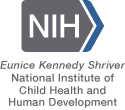Project Proposal
Project Objectives
| (Previous Page) | (Table of Contents) | (Next Page) |
There are five countries in the world that possess completely digitized individual-level censuses for the late nineteenth century: Canada, Great Britain, Iceland, Norway, and the United States. All these datasets were created for genealogical or historical purposes and are now being adapted for social science research.
These five nations at the end of the nineteenth century were closely connected by economic ties and migration flows. All were undergoing rapid social, economic and demographic transitions. The recent availability of an extraordinary volume of individual-level census data in all five countries creates unprecedented opportunities for international collaborative research. To take advantage of these opportunities, however, we will need to coordinate our activities closely.
We seek funding to develop a web-based collaboration that will maximize the usefulness of these data for understanding the North Atlantic world as it entered the industrial age. We are not requesting money to carry out data collection; we are requesting funds to coordinate existing national projects by means of innovative tools for data development. A dozen funding agencies in five countries have contributed substantial resources to develop national census databases for the late nineteenth century. A small investment in collaboration among these countries will leverage these assets and ensure that the full potential of the data is realized. By working together, we can create a database of exceptional power. This fundamental social science infrastructure will stimulate broad-based comparative investigations of economic development and demographic change.
The North Atlantic Population Project will carry out eight principal tasks:
- Maintain close communication via the Internet, by telephone, and in person to develop consistent standards of census interpretation;
- Develop common classification systems for occupation, birthplace, family relationship, and group quarters type that balance the goals of international comparability, retention of detail, and ease of use;
- Create web-based software that will allow researchers in multiple countries to classify census responses in a common data dictionary and to continuously monitor and discuss coding decisions made by other countries;
- Develop a consistent set of constructed variables describing household composition, family interrelationships, urban and metropolitan residence, and other geographic characteristics;
- Document the comparability of census enumeration instructions, procedures and definitions across the five countries;
- Create machine-understandable metadata compliant with the Data Documentation Initiative metadata standard;
- Develop efficient web-based software to optimize and simplify access to the entire database; and
- Disseminate the database through mirrored websites in each country.
This is a collaboration of five organizations that have been central to the creation and dissemination of North Atlantic historical census data. Each of the collaborators brings critical expertise and experience to the project. The Minnesota Population Center is widely known for its work on U.S. historical census data and has a well-established track record for timely completion of innovative infrastructure projects in the social and behavioral sciences. The UK Data Archive (Essex), one of the world’s principal social science data repositories, has unrivaled experience in the improvement of historical British microdata. The Norwegian Historical Data Centre (Tromsø) and the Digital Archive of the Norwegian National Censuses (Bergen) have worked for two decades to create the most comprehensive electronic archive of historical census data anywhere. Finally, the Institute for Canadian Studies (Ottawa) has recently emerged as an important center for the improvement of Canadian historical data. All five organizations are leaders in the development of new methods for web-based electronic data dissemination, and the investigators have published extensively on the international comparability and coding of historical census data.
| (Previous Page) | (Table of Contents) | (Next Page) |



